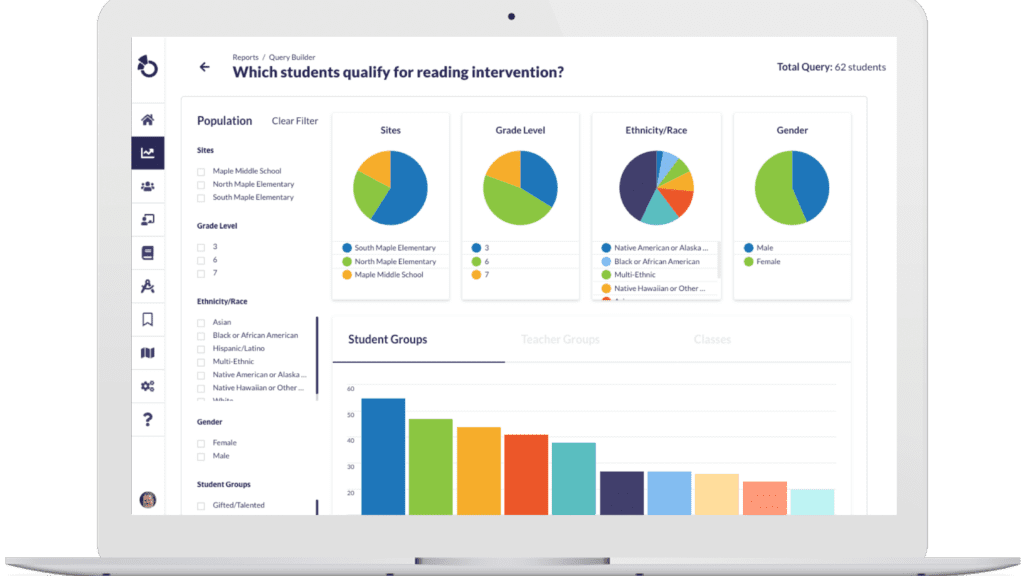Effective Ways to Provide Technology Training for Teachers
Teachers and students are eager to use new technology in the classroom. At the same time, integrating educational technology can be difficult for two main reasons:
- Teachers have limited time to learn new technology.
- Valuable class time to get students up to speed is required.
Training teachers to use technologies in their classrooms becomes inevitably important. The mistake you want to avoid is purchasing new technology for the classroom and failing to provide effective training. Here are some ways schools can avoid falling into that trap.
Choose User-Friendly Technology
For starters, select user-friendly technology. Even the best training can’t fix technology when it is not user-friendly. Joey Shulman, User Experience Manager with Otus, is committed to crafting a teacher-centric experience. “A lot of teachers who use classroom management systems find them confusing and frustrating because they are outdated and not straightforward,” says Shulman. “At Otus, we modernized the design to craft a better user experience. The design is informed by teachers and Otus team members with extensive backgrounds in education.”
Otus is designed to make teachers’ lives more efficient. At first, a large, comprehensive platform like Otus may seem intimidating, but it’s actually time- and cost-effective. Teachers only have to learn—and log into—a single platform. Chris Hull, Otus Co-founder and Chief Product Officer, says, “One of the most important goals on our design team is to create consistency. Once a teacher learns the core set of icons and buttons, it’s the same throughout the platform.”
Since 46 percent of surveyed teachers say the most important factor, in digital resource use, is that the technology is simple to integrate into instruction, decision-makers need to select user-friendly tools.
What Does Technology Training and Support Look Like for Teachers?
Once the technology is selected, training varies based on the tool and provider. At Otus, our platform combines data and assessment management with classroom and learning management. Because of the vast set of features Otus provides approaches, we offer various resources of technology training for teachers:
Onboarding.
When Otus works with a district to onboard teachers, the team focuses on the district’s main objective. “We ask what the district is trying to accomplish,” says Hull, “For example, a district may be focused on behaviors and recognitions or data and analytics.” Onboarding is tailored to the district’s unique objectives.
Live Chat
At Otus, we understand teachers have limited time with their students. “As a teacher, it’s difficult to pick up a phone and wait on hold to get help with software when you have 25 students in your classroom,” says Hull, “That’s the beauty of Otus’ in-app support.” Within Otus, there is a chat feature. A teacher can ask a question during class, walk around the room, and quickly check back when it’s convenient for them. On a weekday, the average response time is less than five minutes.
On-demand Articles
Otus also offers an extensive knowledge base to provide answers to frequently asked questions. These articles cover topics like How to Create a Simple Assessment and Add Students to a Class. If a teacher uses the chat function to ask a common question, the platform can automatically reference a relevant article and solution. Most of the time, the teacher is directed to what they’re looking for. If not, a live person—who likely has a strong background in education—provides additional assistance.
The Bottom Line
Educational technology can be an ineffective use of time and money if teachers don’t know how or why they are using the tool. Providing effective training and support to your staff is critical. When possible, partner with edtech providers who offer ongoing support and are committed to building and continually improving user-friendly, teacher-centric technology built for the classroom.
Otus is one K-12 learning platform to teach, grade, analyze, and plan. Interested in bringing Otus to your school community? Request a demo below, and let’s chat.
Related Resources
Request a demo!
See exactly how Otus can help your school accelerate student growth and improve student outcomes – all while saving educators time.





